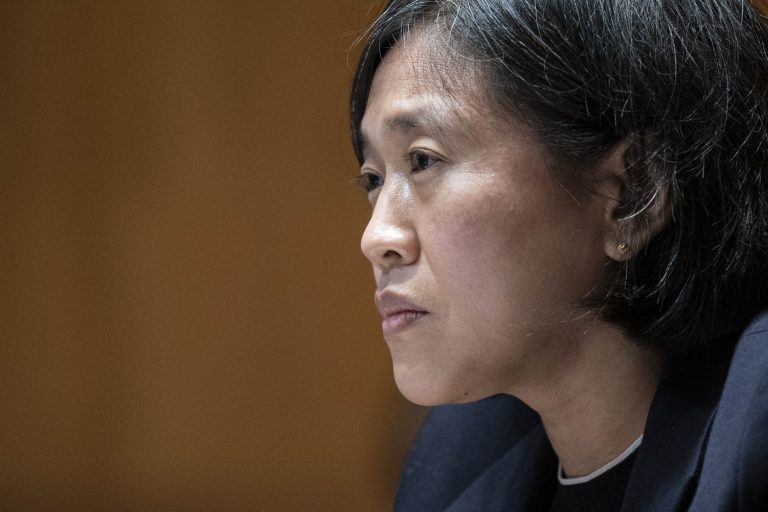Katherine Tai, the United States Trade Representative (USTR), recently unveiled the Biden administration’s trade policy regarding China. However, industry experts are not impressed due to a lack of specifics. Tai did not provide information as to which industries would be affected by the policy or a schedule of Washington’s plans.
Tai unveiled the Biden admin’s China trade plan in a speech delivered at the Washington-based think-tank Center for Strategic and International Studies (CSIS). She criticized China for its policies that hurt workers globally. Tai said that “there are things” that the Chinese “have not done,” referring to Beijing’s commitment to the Phase One trade deal agreed to with the Trump administration last year.
In the Phase One Trade Agreement (POTA) China agreed to buy $200 billion worth of American goods over two years, a promise that has not been kept. According to data from the first 8 months of 2021, China is expected to fall short of this year’s purchase target by around 30 percent.
“For too long, China’s lack of adherence to global trading norms has undercut the prosperity of Americans and others around the world. In recent years, Beijing has doubled down on its state-centered economic system… It is increasingly clear that China’s plans do not include meaningful reforms to address the concerns that have been shared by the U.S. and many other countries,” Tai said.
Tai went on to say that any changes to the Biden administration’s China trade policy will depend on how the future talks between the two sides unfold. The USTR said that she has not spoken with her Chinese counterparts regarding Beijing’s Phase One commitments and that Washington will address “where this relationship goes from this starting point.”
Success
You are now signed up for our newsletter
Success
Check your email to complete sign up
Tai said that whatever happens next will depend on “how the conversation goes.” Tai also ruled out any broad “decoupling” between American and Chinese markets. Instead, she put forward the idea of “recoupling” the two economic superpowers on new terms that are still to be decided.
Tai’s speech has been criticized for being too vague. In an interview with The Epoch Times, Derek Scissors, a China scholar at the American Enterprise Institute, said that the speech didn’t give any new goals or tools. “You say we have to have a worker-centric trade policy, and we can’t tolerate the Chinese behaving like this anymore because it harms America, but we’re going to talk to them about it… When has that ever worked?” Scissors said.
Mary Lovely, a Syracuse University trade economist who attended the event, said that Tai’s whole plan seems to revolve around “I’m going to have a conversation.”
Speaking to the Washington Post, Scott Kennedy, a senior advisor at CSIS, said that the Biden administration did not look like they had a “clear plan” regarding trade with China other than simply talking to Beijing.
According to Nicholas lacovella, director of communications at the Coalition for a Prosperous America — a group that advocates for American manufacturers — Tai has been saying the “right things” about China, but her speech has to be accompanied by actions from the White House.
“We don’t believe that the tariff exclusion process should be reopened if it means that the administration is going to give in to multinational corporations that want tariffs removed on China… These companies have offshored production and jobs overseas – particularly to China – and are more concerned with quarterly earnings, profits, and share price than boosting domestic manufacturing and creating good-paying American jobs,” Iacovella told the South China Morning Post (SCMP).
















